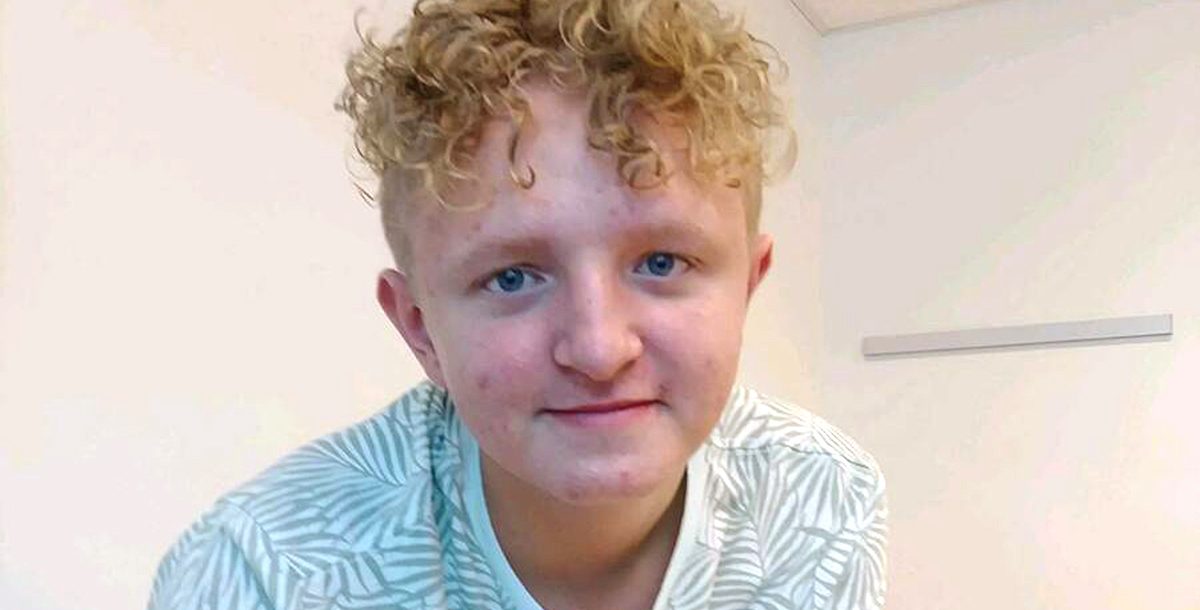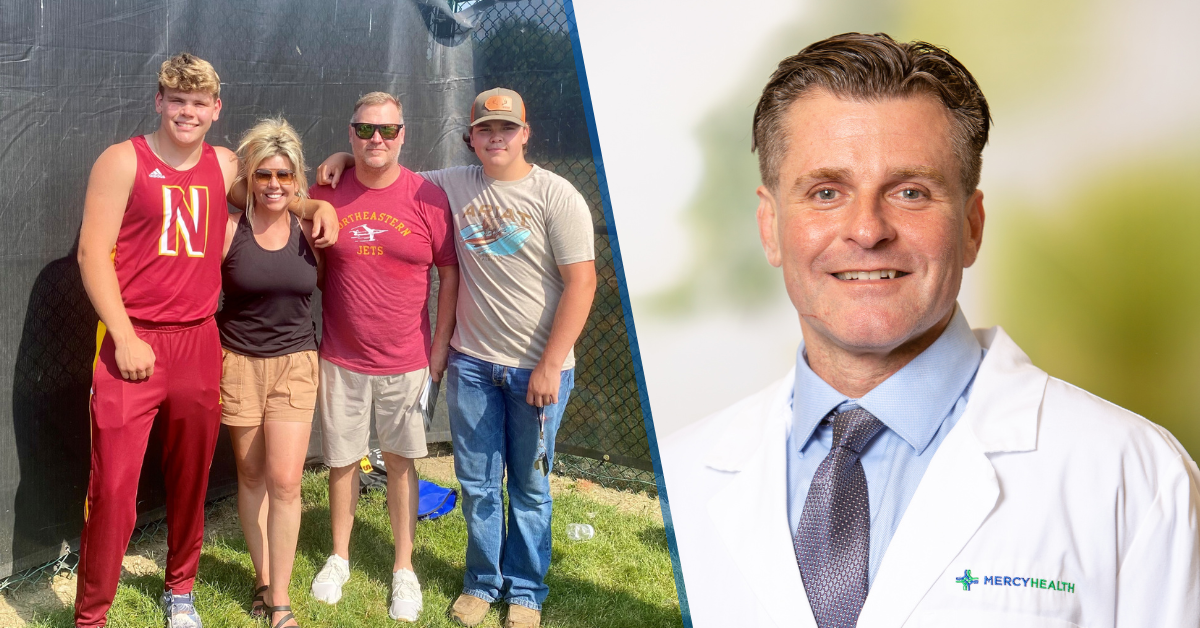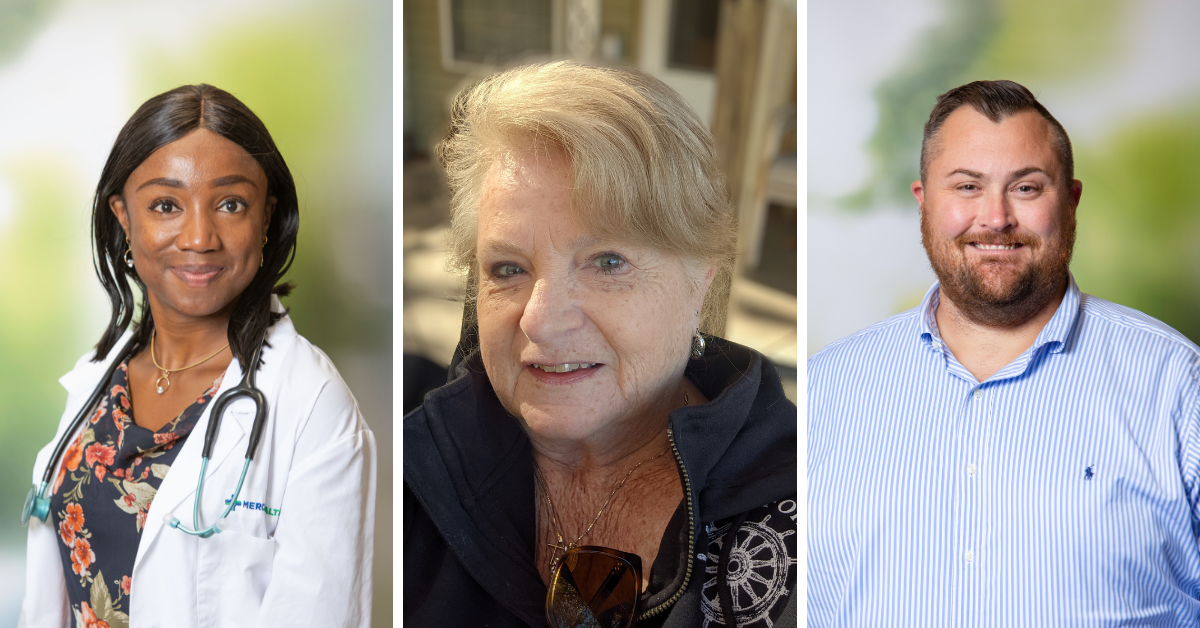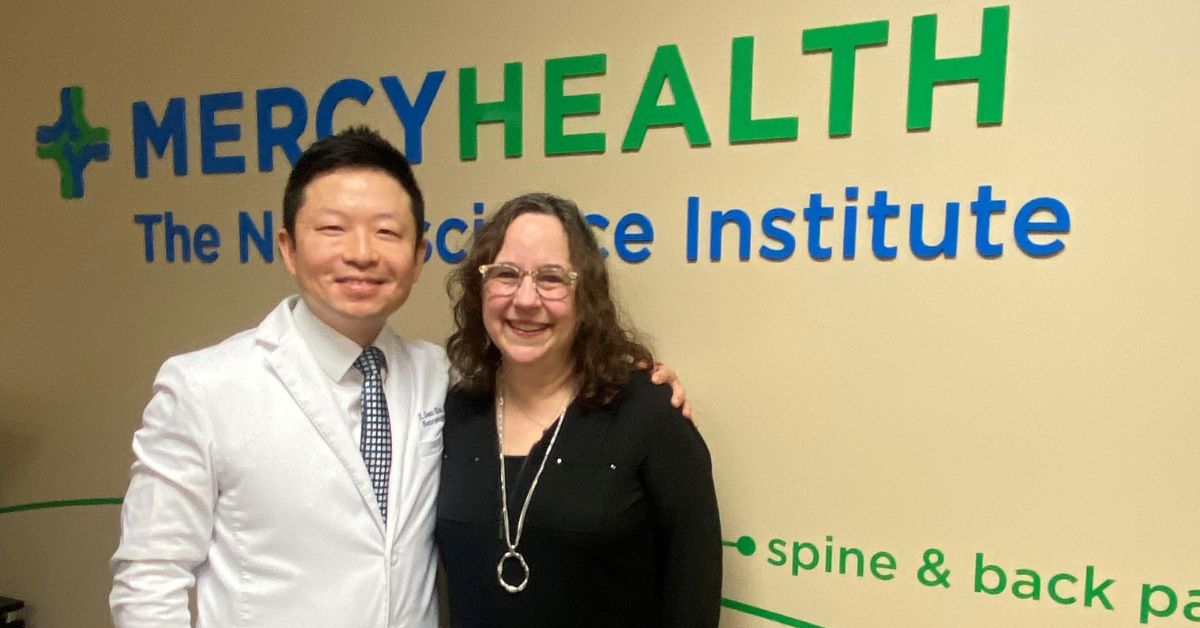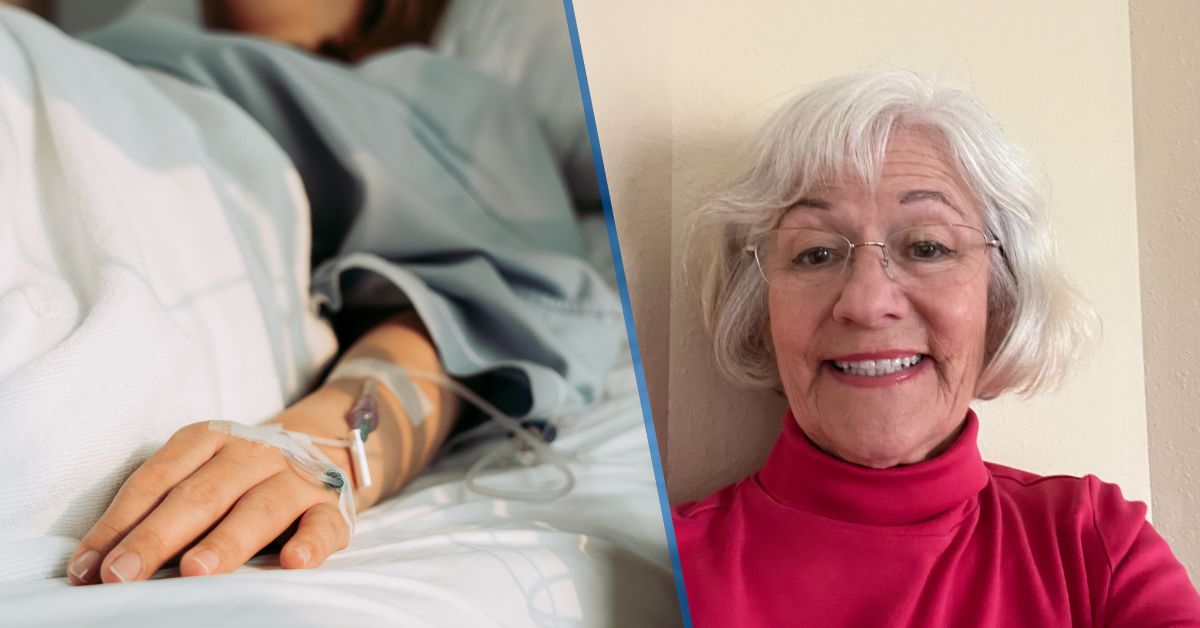Fear of COVID-19 is keeping some people from having their annual check-ups with their primary care providers. But in the case of 14-year-old Conner Arnett of Urbana, OH, a routine visit may well have saved his life.
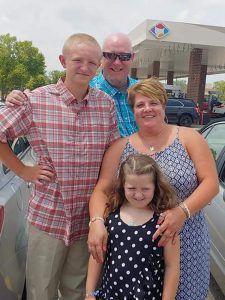
“We were going in for his regular well check,” recalls his mom, Felicia, of their visit to Mercy Health – Urbana Family Medicine and Pediatrics on July 24.
Conner had experienced low oxygen levels in the past due to a medication he takes, so Felicia wasn’t terribly concerned when Sherry Dillon, a medical assistant, was puzzled by Conner’s pulse oximeter reading.
“I did the pulse ox and it showed 91, meaning he was not getting enough oxygen,” Sherry recalls. “It should be 95 or higher. Conner looked perfectly healthy and people can get short of breath when talking, so I tried the other hand. It was still low. I checked with another device to make sure it was working, and his reading was still low. That’s when I made Dr. Bramel aware of what I’d found.”
Jene Bramel, MD, entered the exam room, opened a new device and confirmed Sherry’s finding. Felicia remembers Dr. Bramel saying, “I don’t like this. It doesn’t seem right to me.”
Dr. Bramel had Felicia take Conner to the emergency room at nearby Mercy Health – Urbana Hospital. Conner had blood work done and an EKG on his heart that looked great. However, his chest X-ray had some different results.
“The doctor came back and said that he hadn’t seen something like this since college. There was a mass in Conner’s lung,” says Felicia. The fist-sized mass was an arteriovenous malformation, or AVM, that Conner most likely had since birth. However, until all of this extra testing, Connor and his family didn’t know it existed.
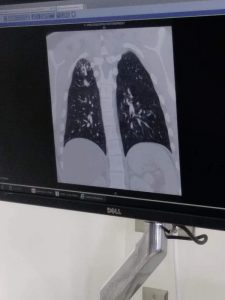
Typically, arteries carry blood from our heart through smaller arteries in the lungs and eventually to capillaries in our organs where the capillaries assist in the exchange of gas and nutrients. Veins then carry the blood back to the heart.
In an AVM, the arteries and veins are directly connected and don’t feed the capillaries. That reduces the gas exchange and leads to lower oxygen levels in the body.
While some people may experience shortness of breath as a result, others, like Connor, are symptom-free. Conner was lucky his AVM was diagnosed and his story highlights the importance of seeing your primary care provider annually.
“If it had not been found, he might have had a stroke or his lung could have exploded,” says Felicia.
Conner was transferred to a children’s hospital on July 30, where a team of specialists performed minimally invasive surgery.
“They found three masses and zapped them. They are all gone,” says Felicia. “At his last check up on September 3, they said everything looked good and his oxygen level is now normal. I thank the Lord for everything that happened. The team at Urbana Family Medicine and Pediatrics is amazing. I thank them every day and I want people to know that the littlest thing can save a child’s life.”
Learn more about the health care services we provide at Mercy Health.


